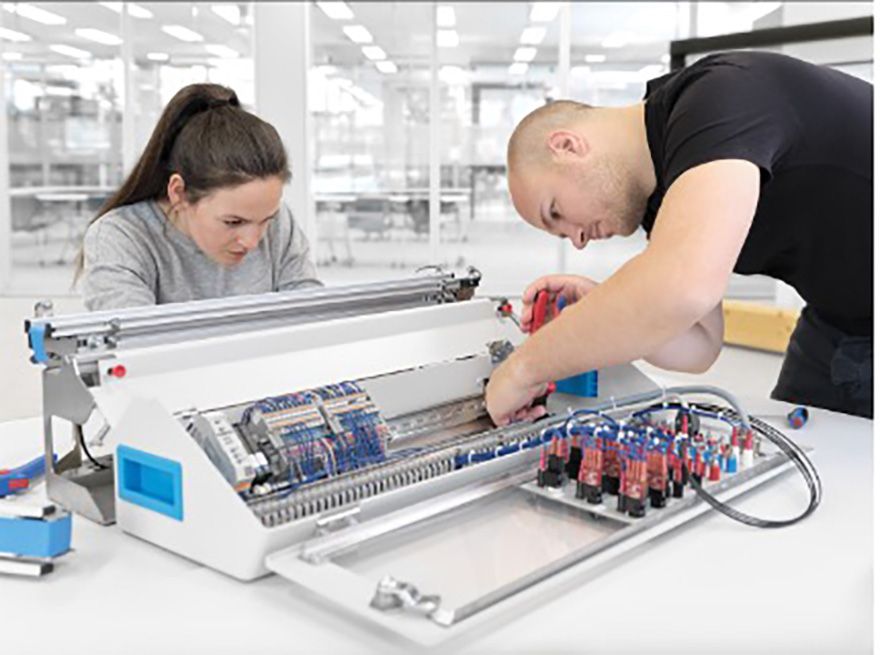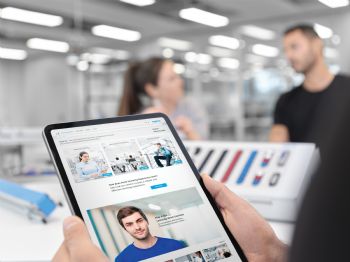 The new SkillsConveyor conveyor belt learning system enables learners to acquire essential skills in the field of automation technology
The new SkillsConveyor conveyor belt learning system enables learners to acquire essential skills in the field of automation technologyThe digital transformation that the manufacturing industry is currently undergoing is not only changing which competencies are required as part of technical, vocational or advanced training, but also how such skills can be acquired. The
Festo Learning Experience (Festo LX) digital learning portal holistically links theoretical learning content with hardware and software solutions from
Festo Didactic, allowing knowledge to be tested in a practical way, giving learners the necessary skills the high-tech industry requires.
The newest member of Festo Didactic’s learning system family, SkillsConveyor (pictured above), is a transfer belt training system that can be used to teach various automation technology skills and abilities to train mechatronics or electronics technicians of the future. Learners start with the basics and are accompanied by the multimedia learning content and videos on Festo LX as they progress to more senior roles.
For example, the new MPS 404-K learning factory has been created as part of a university collaboration; in particular as a platform for ‘Industrial Engineering’ degree programmes. It focuses on productivity, efficiency, and profitability. Through the complementary courses on Festo LX, learners gain deep insights into economic topics in the production environment and understand how production processes work in reality — from the sensor to the cloud to the SAP system.

Interrelationships between technology and business thus become easier to understand and can be experienced in practice in a learning factory with a realistic infrastructure. Using the appropriate courses on Festo LX, future industrial engineers acquire skills in essential key areas such as data acquisition, automated manufacturing or IoT applications. A key advantage is that those who want to learn remotely from their educational location, away from a real learning factory, can enjoy the benefits of digitalisation and carry out the learning paths using a ‘digital twin’ of the system.
With the increasing prevalence of cobots in manufacturing, there is a growing need for qualified employees who are able to control and manage cobot systems, some of which are AI-supported, and interact with them in a target-oriented manner.
Through Festo LX, these skills can be taught in a practical way using a learning factory with an AI-based collaborative robot system. The learning scenarios are related to real applications of human-machine interaction in the industry. For example, workpieces are recognised by AI algorithms, fed into the production process by the cobot or handed directly to a worker as a sample for quality control. The learning solution is easy to operate and is therefore ideal for vocational schools, training companies or research projects.
Virtual Reality (VR) learning makes it possible to learn skills that are difficult or impossible to teach using conventional learning formats. This teaching method encourages learning by exploring and experiencing. It means that self-directed learners can experiment freely, make mistakes, and gain practical experience. In the future, Virtual Reality Learning will be available on the Festo LX digital learning portal in combination with other digital learning offerings and physical learning systems.
For more information about Festo products and services, visit the website
here.